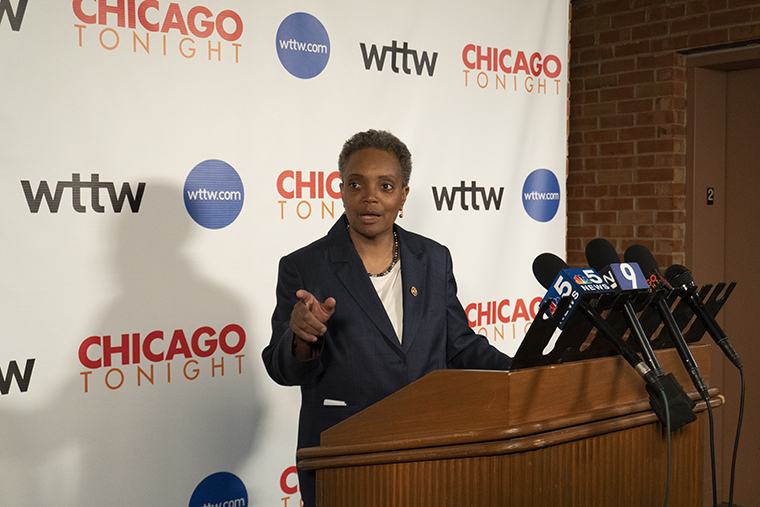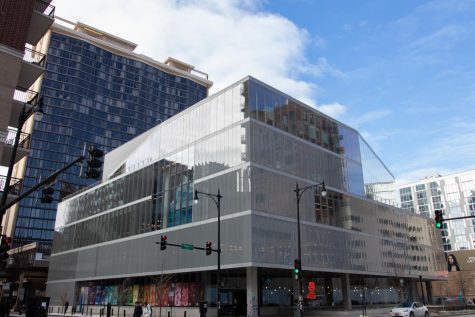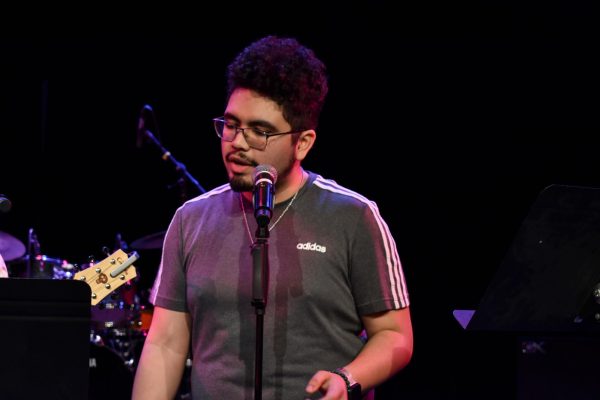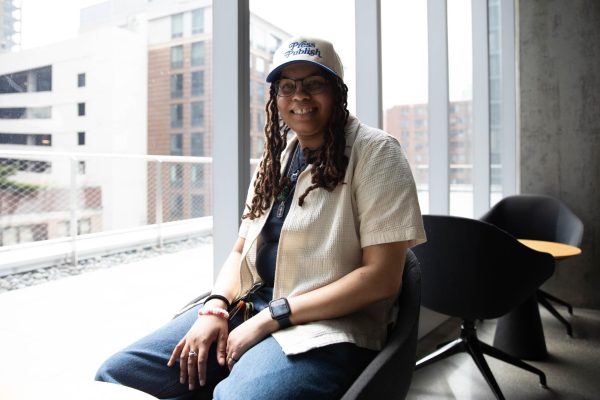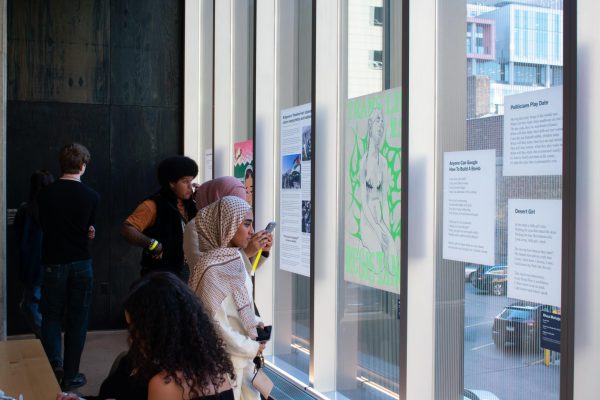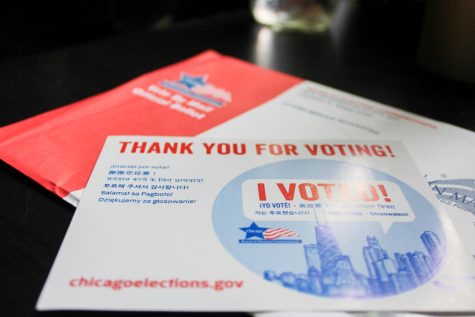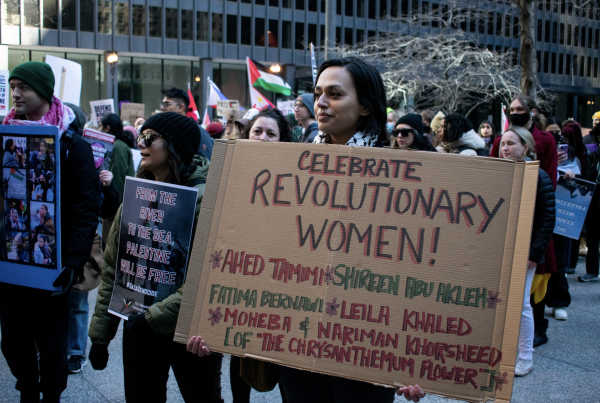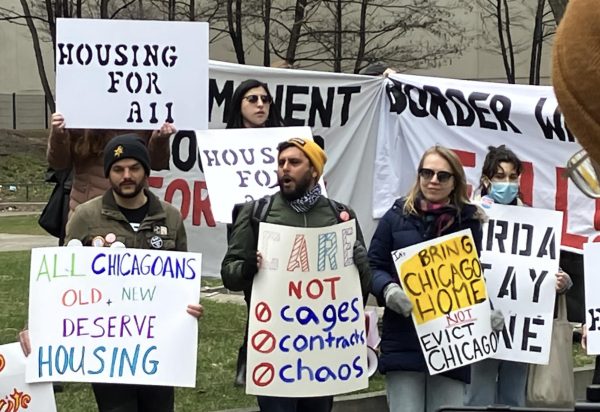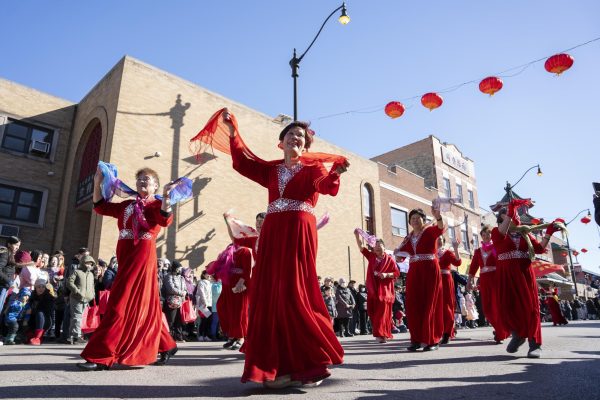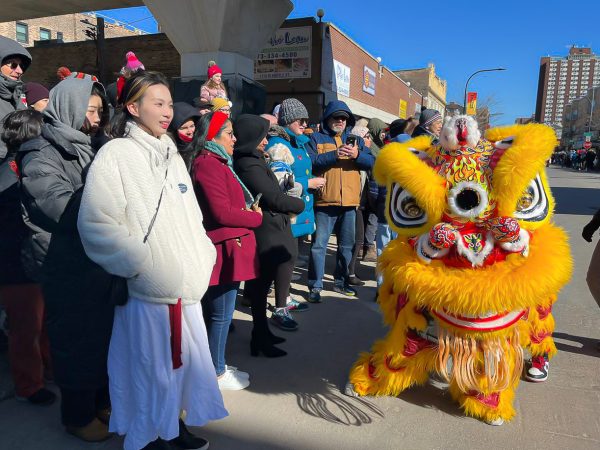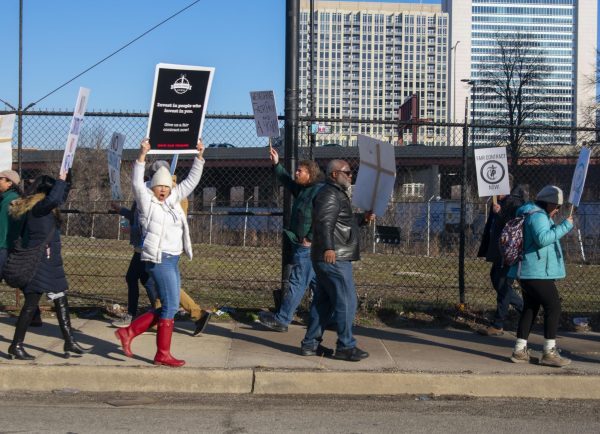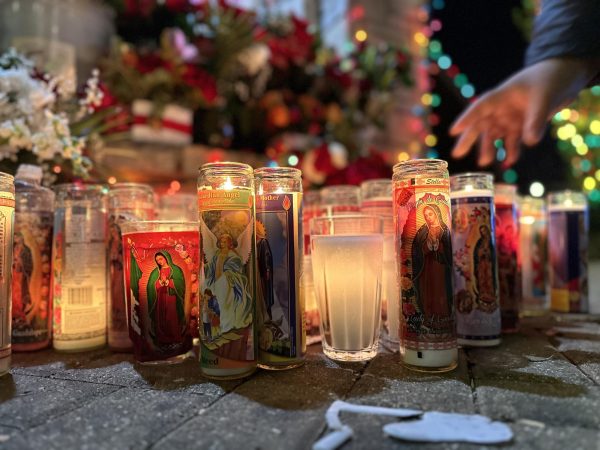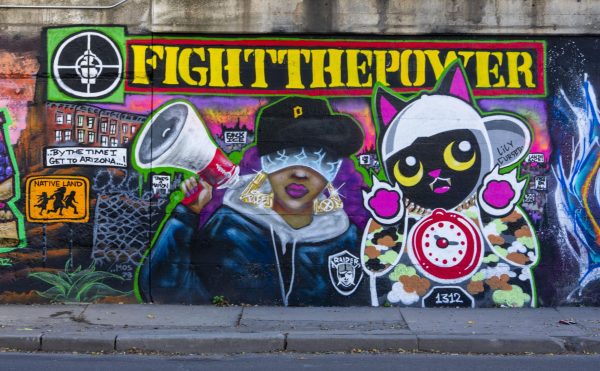Lori Lightfoot to build a Chicago where young people thrive
Lori Lightfoot has cited the need for change and breaking away from the status quo during her campaign against Toni Preckwinkle to be Chicago’s next mayor.
March 22, 2019
In an election that pits experience against the need for change, Chicagoans will elect the first black woman mayor on April 2.
Former Chicago Police Board President Lori Lightfoot will face off against Cook County Board President Toni Preckwinkle in a runoff election to replace Mayor Rahm Emanuel. The candidates received the most votes among the initial 14 candidates in the Feb. 26 general election, with Lightfoot earning 17.5 percent and Preckwinkle earning 16 percent of the total votes.
“[What] is most important is the endorsement of the voters,” Lightfoot said during a March 21 debate on Chicago Tonight.
In the weeks following the general election, Lightfoot has received endorsements from some of the former mayoral candidates, including Willie Wilson, Gery Chico and Paul Vallas.
“Lori will be stronger on ethics reforms, and those are necessary right now, given some of the things you’re seeing emerge from the [City] Council,” Chico told the Chicago Sun-Times in a March 14 article.
Preckwinkle has not received an endorsement from any of her former competitors, which is largely unprecedented, according to University of Illinois at Chicago Political Science Professor and former Ald. Dick Simpson (44th Ward), who has endorsed Lightfoot as well.
Simpson said Preckwinkle is not receiving endorsements because she “alienated” the other candidates and was “arrogant” in some debates.
The deciding factor among voters may be whether they want to see change in Chicago and an end to corruption, Simpson said.
Throughout the campaign, Lightfoot has accused Preckwinkle of being part of the “political machine,” Simpson said. Preckwinkle tried to paint her long history in Chicago politics as useful experience, but her ties to Ald. Ed Burke (14th Ward)—who is facing federal attempted extortion charges—gave opponents an opening to attach her to Chicago machine politics.
“We have been failed by the status quo,” Lightfoot said in the March 21 debate. “We have been failed by the broken and corrupt political machine. What people are rallying to is this opportunity to really break from that terrible past and move forward in a positive way.”
As the recipient of so-called “dark money,” Lightfoot is not unscathed from political criticisms. WBEZ reported a $40,000 donation from the recently-founded organization Change Chicago, whose donors are not known.
Barring any political twists, Simpson estimates that Lightfoot will win with 58 percent of the vote.
Anti-gay flyers aimed at Lightfoot popped up around a handful of South Side churches the weekend of March 16, falsely claiming Lightfoot would enforce the nonexistent Gay Equality Act. The flyer also stated that all jobs under Lightfoot would be given exclusively to gay people. Both Lightfoot and Preckwinkle condemned these flyers.
In the general election, Lightfoot won a significant portion of the white vote. Simpson said she is likely to also bring in part of the black vote in the runoff, with Preckwinkle taking the rest. However, it is the Latino vote that could swing the election toward either candidate.
“Race is always important in Chicago elections,” Simpson said. “But in this case, Lori is getting support from groups who [are outside] her race.”
When it comes to getting the younger vote, Lightfoot said her aim is providing jobs for those coming out of college, creating affordable housing and building up Chicago’s technology hub.
“I want to make sure that we build a Chicago that [young people] feel like they can live in and thrive in,” Lightfoot said in a press conference following the debate. “I want young people in this city … to feel like they’ve got a stake here because we have a city that hears them and sees them and is going to be responsive to building a future that they can have confidence in.”


